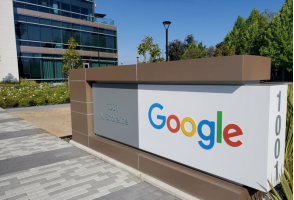
Parsing Google search results is a question that most people are curious about. The algorithm of Google search results has been published and executed for some time. A lot of people parse Google search results.But its existence has been criticized by many Google users. Supporters say this is a big step forward. Researchers can obtain more effective results in a shorter period of time. Opponents believe that this kind of personalized search results leads to over-personalized content. Therefore, some normally displayed content cannot be displayed. This is largely due to the external environment and history of the Google search results algorithm itself is not perfect.

What is parsing Google search results
To parse Google search results, first understand the Google search engine. When you start searching, Google will sort all kinds of web pages for you to browse according to the keywords you enter. For example, the current search keyword is "iPhone X". The Google search engine will recommend relevant web pages for iPhone X based on the relevant search behavior records before this search. By parsing Google search results, we can see that, the result is very interesting. When other users also use this keyword to search, I guess it is very likely that they will not see the same search result. So we can understand that Google’s custom search results are based on the master data recorded by the current user’s search behavior.
Official instructions on parsing Google search results
Parsing Google search results is the purpose of parsing Internet search engines. Is to identify documents or other items related to user needs. And display them in the most useful way for users. This behavior usually requires a lot of reading comprehension-inferring what the user wants from various records. Some of these clues may be user-specific. For example, knowing that the user is requesting a mobile device. Know where the equipment is. This can provide the user with better search results. Clues related to user needs can also be more relevant. For example, if multiple other clues are associated with the results, the research results may have greater relevance. If the link is very relevant to its own results, then the relationship to the results may be more accurate. Using this method of determining relevance to parse Google search results can be based on the principle: if the author of a page thinks another website is sufficiently relevant, then website researchers will find that website is particularly relevant. In short, web authors "vote" on the relevance of the website. They can use a variety of inputs instead of these techniques to determine and classify research results, or as a supplement. For example, you can predict the user's reaction to a particular search result or list of search results. This is to give a higher ranking to the results that users frequently click, and to select the most relevant results.
Parse the execution of Google search results
When the user enters a word in the keyword they want to search, Google will parse the Google search results. Start to retrieve content in the search box through a search engine, and then give corresponding keyword suggestions in the search box of the browser. If the user has selected the keyword suggestions provided by the search engine in the middle, the current results will be executed immediately. If the provided recommendations are not taken, the application will summarize the current recommendations. Then, after the entries of all keywords are executed completely, the corresponding ranking results are generated. Before parsing Google search results, the Google search engine will use the data in the survey report and the predictive model of the search information suggested by the user. Refer to the search records and interactive pages of user-related data before the proposal submission process. For example, the stay time of a page and the anchoring of the text content to determine the user's search and preferred content. Google will rate these interactive articles. Give higher ratings to relevant content. This will increase the relevance of personalized search results in the next step. In the final analysis of Google search results, it should be noted that Google has personalized the search results for everyone. Each user’s search results are very different. Parsing Google search results has specific search techniques for search results. Compared with general search engines, the biggest difference is that Google Custom Search is for specific users. The general search engine is aimed at users with the same type of keywords.
The above is to parse the relevant content of Google search results. Google is by far the largest search engine, and it processes a huge amount of data every day. How to parse Google search results, this is a question worth thinking about.
